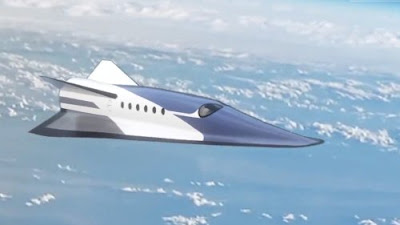Bioinspired Control Systems for Self-Driving Vehicles
New Autonomous Paradigm on the Ground, Underwater, in the Air - Based on Brain Research
Boston University Leading Global Scientific Research Team
The US Department of Defense just awarded $7.5 million to a team of scientists from Boston University, MIT and Australian research universities. The funding is to utilize neuroscience research to better control and organize engineered systems for the development of the next generation of autonomous systems for driverless vehicles. The systems would be new bioinspired control systems to mimic how living organisms' brains successfully navigate their spacial environments.
Brain Power
What's fascinating about this project is that the autonomous systems they develop will have applications across driverless vehicles on land, sea and air. The team is led by Boston University Professor of Engineering Yannis Paschalidis, who specializes in biomedical, systems, electrical and computing engineering. He uses data science and machine learning to develop new software algorithms and control systems.
Project Neuroautonomy
The project brings together international experts in neuroscience with an emphasis on localization, navigation and mapping functions, along with global experts in robotics, algorithms, computer vision and control. It's called Project Neuroautonomy.
Focus
The team will investigate how the brains of living organisms - humans, animals and ants - process their spacial environment and navigate it. The objective is to get a read on the code animals and humans use to navigate and then translate that into specific, detailed control paradigms and policies for self-driving vehicles of all kinds.
 |
| Source: Stock Image of the Brain |
Boston University Leading Global Scientific Research Team
The US Department of Defense just awarded $7.5 million to a team of scientists from Boston University, MIT and Australian research universities. The funding is to utilize neuroscience research to better control and organize engineered systems for the development of the next generation of autonomous systems for driverless vehicles. The systems would be new bioinspired control systems to mimic how living organisms' brains successfully navigate their spacial environments.
Brain Power
What's fascinating about this project is that the autonomous systems they develop will have applications across driverless vehicles on land, sea and air. The team is led by Boston University Professor of Engineering Yannis Paschalidis, who specializes in biomedical, systems, electrical and computing engineering. He uses data science and machine learning to develop new software algorithms and control systems.
Project Neuroautonomy
The project brings together international experts in neuroscience with an emphasis on localization, navigation and mapping functions, along with global experts in robotics, algorithms, computer vision and control. It's called Project Neuroautonomy.
Focus
The team will investigate how the brains of living organisms - humans, animals and ants - process their spacial environment and navigate it. The objective is to get a read on the code animals and humans use to navigate and then translate that into specific, detailed control paradigms and policies for self-driving vehicles of all kinds.



Comments
Post a Comment